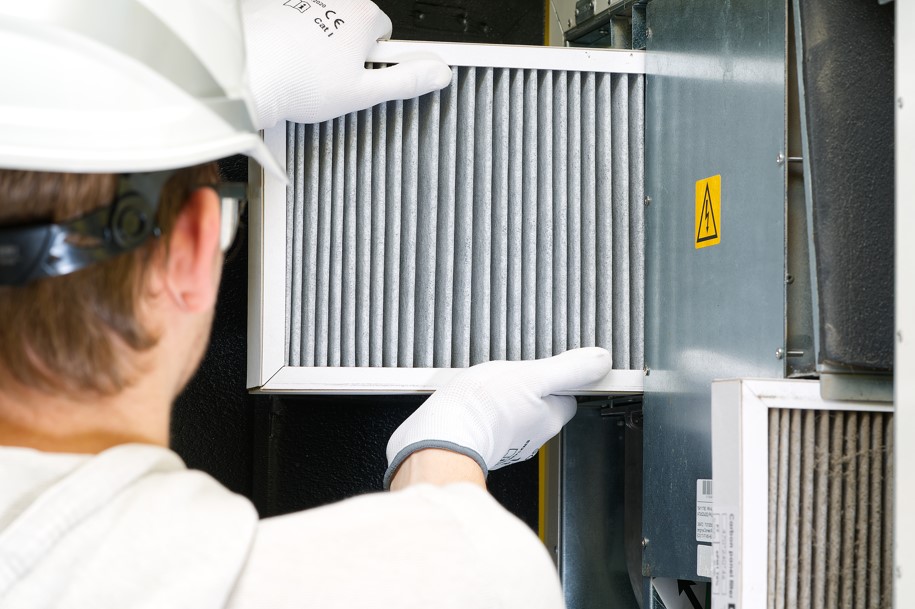Furnace Filters – What You Should Know About Them?
If you have an HVAC system in your home, you’ve probably heard of furnace filters. But what are they, and why are they important? Essentially, furnace filters are designed to remove harmful particles and pollutants from the air that circulates through your home. By doing so, they help to improve your indoor air quality and reduce energy consumption. In this article, we’ll take a closer look at furnace filters and what you need to know about them.
What Are Furnace Filters?
Furnace filters are devices that filter the air that circulates through your HVAC system. They’re typically made from materials like fiberglass, polyester, or pleated paper, and come in different shapes and sizes. When air passes through the filter, the pollutants and particles in the air become trapped, which leaves cleaner air circulating through your home.
There are different types of furnace filters, including flat panel filters, pleated filters, and high-efficiency filters. Flat panel filters are the most basic type, while pleated filters have more folds, which increases their surface area for trapping pollutants. High-efficiency filters are the most effective, as they can remove even the smallest particles, like bacteria and viruses.
No matter what type of furnace filter you have, the basic principle is the same. As air passes through the filter, pollutants and particles become trapped, leaving cleaner air to circulate through your home.

Why Are Furnace Filters Important?
Have you ever considered how furnace filters affect the air quality in your home? Furnace filters play a critical role in ensuring that the air circulating through your HVAC system is clean and free from pollutants. By trapping harmful particles like dust, pollen, pet dander, and mold spores, furnace filters can significantly improve your indoor air quality, reducing the risk of respiratory problems like allergies and asthma.
But furnace filters are also important for another reason: energy efficiency. A clogged or dirty furnace filter can cause your HVAC system to work harder than necessary to maintain the desired temperature in your home. This can lead to higher energy bills and potentially costly repairs down the line. By replacing your furnace filter regularly, you can help your HVAC system run more efficiently and save money in the long run.
Factors to Consider When Choosing Furnace Filters
When it comes to choosing furnace filters, there are a few factors to consider. One of the most important factors is the filter’s MERV rating. MERV stands for Minimum Efficiency Reporting Value and is a rating system that measures the effectiveness of furnace filters in removing particles from the air. The higher the MERV rating, the more efficient the filter is at removing pollutants and particles from the air.
Another important factor to consider is the filter material. Fiberglass filters are the most common and affordable, but they are also the least effective. Pleated filters are more effective and have a larger surface area for trapping pollutants. High-efficiency filters are the most effective and can even remove bacteria and viruses from the air. The filter material you choose will depend on your budget and the specific needs of your home.
In addition to MERV rating and filter material, you’ll also want to consider the size of the filter, airflow resistance, and cost. Choosing a filter that is the right size for your HVAC system will ensure proper airflow and efficiency. A filter that is too restrictive can cause your HVAC system to work harder, reducing its efficiency. And, of course, the cost is always a factor when choosing any home improvement product, so make sure you pick the right product suitable both for your needs and budget.
How Often Do You Change Furnace Filters?
Now that you know how important furnace filters are, you may be wondering how often you should change them. How long do furnace filters last, anyway? The answer depends on several factors, including the type of filter you’re using, the level of air pollution in your home, and the manufacturer’s recommendations.
Generally, most furnace filters last anywhere from one to six months – their lifespan depends on several factors, including the type of filter, how often it’s used, and the level of air pollution in your home. As such, it’s a good idea to replace your furnace filter every three months.
However, if you have pets, smoke indoors, or live in an area with high levels of pollution, you may need to replace your filter more frequently. On the other hand, if you live in a relatively clean environment and don’t have pets, you may be able to go longer than three months between filter changes.
It’s important to check your filter regularly and replace it as needed. A clogged or dirty filter can reduce the efficiency of your HVAC system and lead to higher energy bills. It can also allow harmful particles to circulate through your home, potentially causing health problems.
Final Thoughts
In the end, furnace filters are an important part of your home’s HVAC system that help keep your indoor air clean and healthy. By choosing the right filter and replacing it regularly, you can experience improved air quality, lower energy costs, and a more efficient HVAC system. It’s important to keep factors like MERV rating, filter material, size, airflow resistance, and cost in mind when choosing a furnace filter that best suits your needs and budget.
By taking care of your furnace filter, you can enjoy a more comfortable home with better air quality. Don’t forget to check your filter regularly and replace it as needed to ensure optimal performance. Make it a priority to keep your furnace filter in mind and give it the attention it deserves to ensure the best possible indoor air quality and energy efficiency. Your health and wallet will thank you for it!
Do you need help changing your furnace filters? Contact us today to learn more about how we can help.
